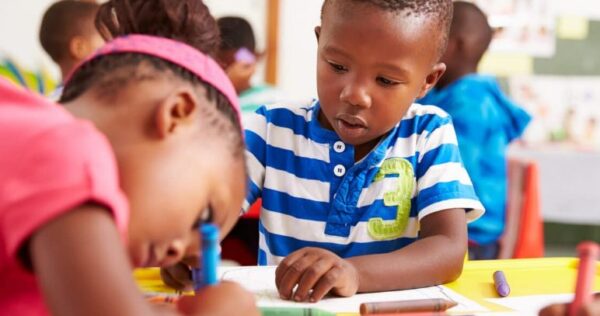The formative years of schooling during ages two and seven are a critical period in a child’s life.
Preschool is a breeding ground that facilitates cognitive, emotional, and social development.
Children acquire fundamental skills like problem-solving, language, and numeracy through play-based learning. They also develop social-emotional skills like sharing and cooperation.
The preschool experience gives children a safe, structured environment that will prepare them academically, as well as emotionally, for further success in school and in their lives in the future.
On the other hand, here are a few things a preschool should teach kids in their early schooling days:
1. Basic literacy skills
The most vital thing that a kid can do in the early years of school is to learn reading and writing. Start with teaching the child the alphabet and the sounds each letter makes. Reading with them every day would help them grow their vocabulary and comprehension skills. If they develop an attachment to books, this will keep them loving learning throughout their lives.
Tip: Use picture books and make reading a fun, interactive experience. Ask your child questions about the story to help them understand it better.
2. Basic early learning concepts
Incorporating activities, such as counting steps, learning the names of items around the home, and naming colors and shapes, that let the child be active in learning makes education enjoyable and lively. Such routine activities provide ample opportunity for toddlers to practice math, language, and fundamental skills in an informal atmosphere. Such teaching, incorporated with routine activities and chores, augments learning and cultivates the love and affinity for it. Many benefits can accrue from this kind of approach in improving the cognitive development of the child as well as language skills, problem-solving, and creativity that will establish the child for a well-rounded learning pathway.
Tip: Use everyday activities—like counting steps, naming objects in the house, or identifying colors and shapes—to make learning fun and interactive. Combining math with language and other basic skills creates a well-rounded foundation for your child’s learning journey.
3. Good habits and routines
The overall development of your child needs to ingrain good habits early in their life. Teach them how to follow daily habits like rising, eating, brushing teeth, and bedtime rituals. Such habits create a consistent schedule for children that makes them feel safer and learn to manage it with time. Provide them with small responsibilities around the home, such as picking up after themselves or organizing their backpack.
Tip: Create a visual chart of daily activities to help your child understand the sequence of their routine. This also helps build discipline.
4. Communicate their needs
An important part of early childhood education is teaching children to express their needs reasonably. They need to understand that part of their duty is voicing their feelings so that others may respond correctly to what they need. If your child says, “I’m thirsty” or “I need help with my shoes,” acknowledge the request and lend assistance. This is a reinforcement of that behavior, making developing their communication skills easier for needing to feel confident expressing themselves.
Tip: Encourage your child to express basic needs clearly, such as saying “I’m hungry,” “I need help,” or “My leg hurts.”
5. Independence and problem-solving
As a child grows, it becomes very important to develop one’s independence, along with the ability to solve their problems. Allow the child to attempt dressing themselves, choosing clothes, and doing simple chores. They will have to teach themselves to think of different solutions when confronted with difficulties instead of doing it all for them. This builds their confidence and critical thinking skills.
Tip: Encourage your child to solve small problems that may include what snack to choose or how to organize toys. That will make them very independent and confident.
As children enter school in the early years, they are just like little sponges: soaking up all things new, absorbing and infusing all kinds of information and skills at a phenomenal speed. By ensuring a good grasp of literacy, math, good habits, social skills, and problem-solving abilities, you will be providing a foundation for future learning for your child. They are the lessons upon which their academic success and emotional well-being will depend for years to come.














